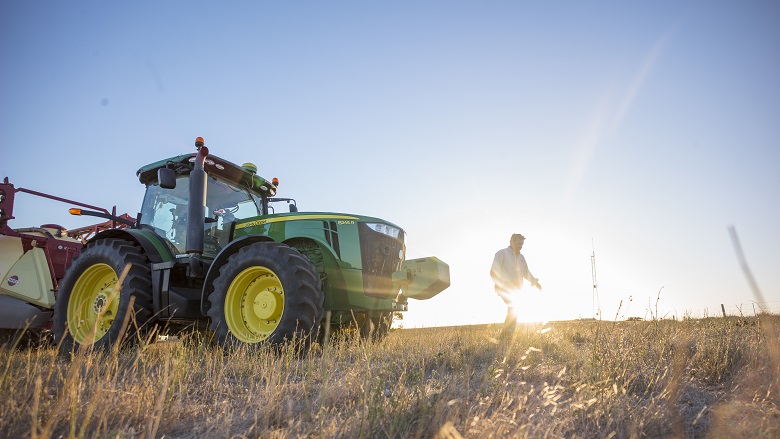Getting finance for farm machinery is a big decision for farmers wanting to increase productivity without needing to invest the up-front capital.
I’ve worked with a ton of farmers seeking farm machinery finance, so I know how important it is to get the equipment you need while managing your cash flow.
In this guide, we’ll take a look at the most common types of farm machinery finance in Australia, and the process you should follow to get the best one.
What is Farm Machinery Finance?
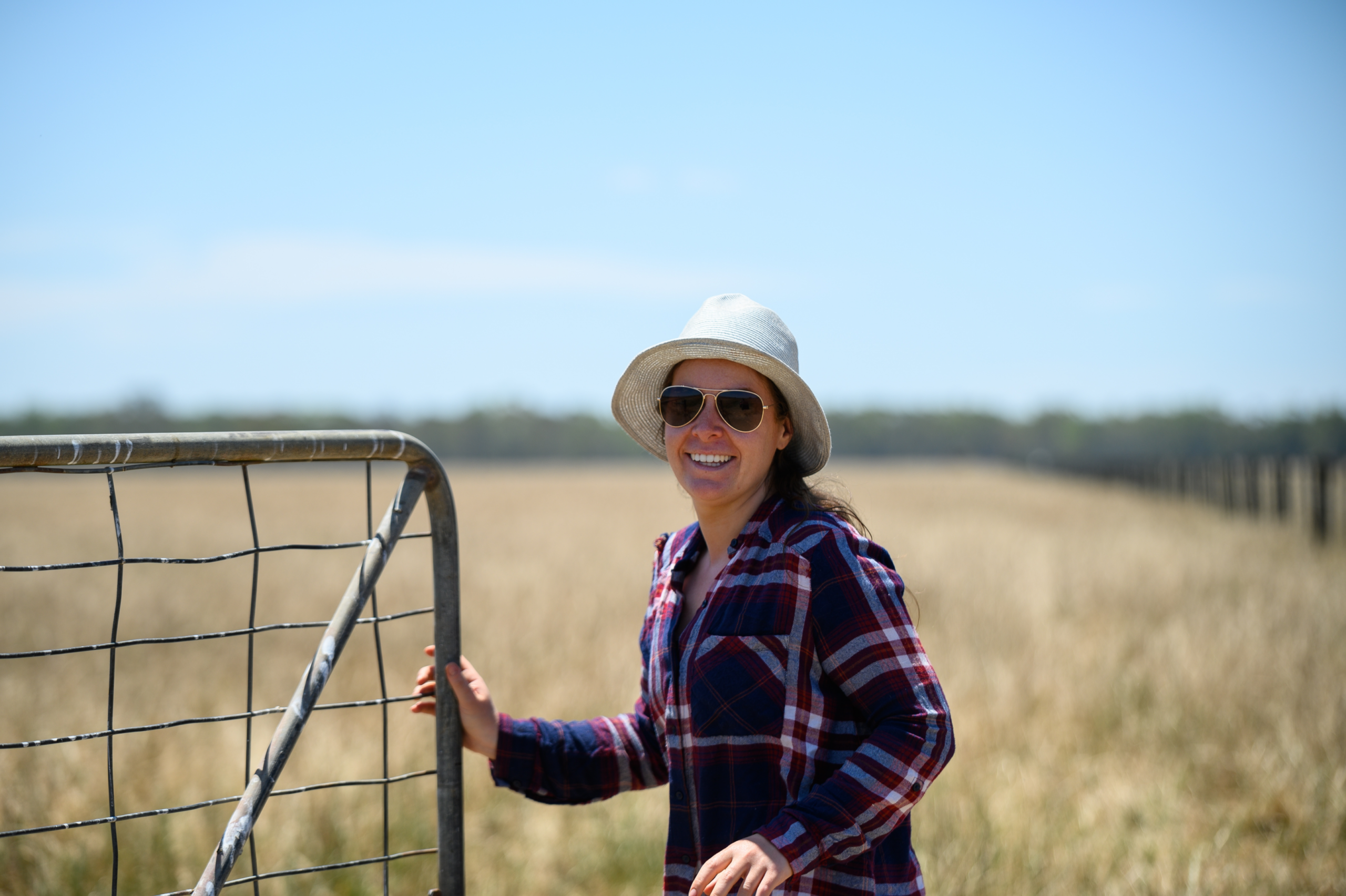
Farm machinery finance is a type of equipment finance specifically designed for the agricultural sector.
It allows farmers to buy new or used machinery through various finance options and spread the cost over a set period. This helps you manage your cash flow and get the equipment you need without a big upfront hit.
Key benefits of Farm Machinery Finance
Cash Flow
By spreading the cost of the machinery over several years you can manage your cash flow better. This is important for other operational expenses and keeping your farm running smoothly.
Latest Equipment
Stay ahead of the competition by getting the latest machinery with the latest technology, increase your farm’s productivity and efficiency. This will not only increase your output but also keep you in line with industry trends.
Flexible Terms
Choose from a range of loan terms to suit your financial situation so you can manage your repayments comfortably. Flexible terms means you can find a repayment schedule that matches your cash flow cycles and business needs.
Tax Benefits
Many finance options have tax benefits, reducing the overall cost of the investment. Talk to a tax professional to see how finance can work for you.
Working Capital
Use finance to preserve your working capital for other business needs. This means you can invest in other areas of your farm such as livestock, feed or infrastructure improvements.
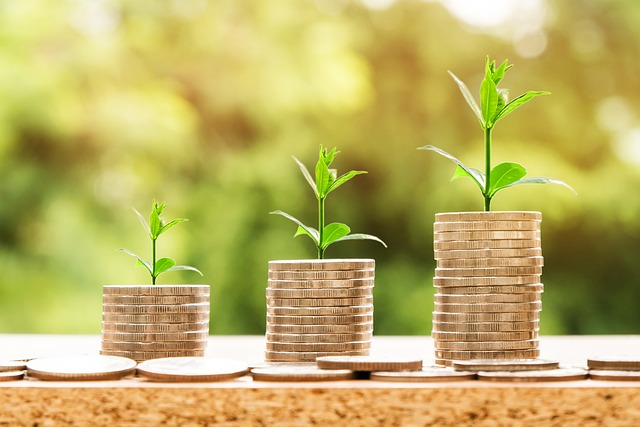
Common Types of Farm Machinery Finance
Equipment Loans
Equipment loans are a popular option for financing farm machinery. Banks for farmers offer these loans to allow you to purchase equipment while using the machinery itself as collateral. The key benefits include:
-
Fixed or Variable Interest Rates: Choose an interest rate that suits your financial strategy. Fixed rates provide certainty, variable rates can provide savings if interest rates drop.
-
Flexible Repayment Terms: Terms can be structured to match your cash flow cycles so repayments are manageable.
-
Ownership at End of Term: Once the loan is paid out you own the machinery outright, long term value for your investment.
Finance Leases
A finance lease means leasing the machinery for a fixed term with the option to purchase at the end of the lease. This has several benefits:
-
Lower Initial Costs: Lease payments are typically lower than loan repayments, easing initial cash flow and making it easier to acquire necessary equipment.
-
Option to Upgrade: At the end of the lease term, you can choose to upgrade to newer machinery, ensuring your equipment remains up-to-date.
-
Tax Deductions: Usually lease payments can be deducted as a business expense, which can reduce your taxable income.
Chattel Mortgages
Chattel mortgages is another finance option where the lender provides funds to buy the machinery and you make regular repayments. The machinery is security for the loan. Benefits include:
-
Fixed Interest Rates: Enjoy the predictability of fixed interest rates, which can help with budgeting and planning.
-
Flexible Loan Terms: Terms can be structured to suit you, so you can choose a repayment schedule that fits your farm.
-
Immediate Ownership: You own the machinery from day one which can help build equity in your assets.
Low Document Loans
For farmers who don’t have a lot of financial documentation low doc loans are an option. These loans require minimal documentation and are designed for quick approval so you can get funds fast.
This can be useful for smaller farms or new businesses who don’t have a long credit history. Speak to an expert business finance broker to learn how this might work for you.
Operating Leases
Operating leases are similar to finance leases but have shorter terms and no option to purchase the equipment at the end of the lease. This is good for farmers who need equipment temporarily or want to keep their machinery current.
How to Apply for Farm Machinery Finance
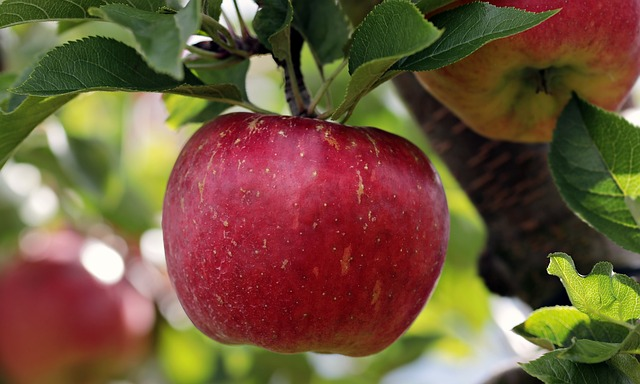
Getting finance for farm machinery isn’t always an easy process. That’s why it’s usually a good idea to work with a business finance broker with experience in this space. They’ll be able to make the process much quicker and simpler. As a general rule, this is what a typical farm machinery finance application process might look like:
Work out what you need
First work out what type and amount of machinery you need, current and future requirements and new or used. Make a list of the equipment you need for your operation, including growth potential.
Speak to a finance broker or lender
Arrange a meeting to go over the documents and paperwork that you might need. These might including cash flow forecasts, financial documents, including bank statements, financial statements, and potentially tax returns.
Having these documents ready up front can help make the process quicker, and increase your chances of approval.
Submit your application
Once you’ve decided on the right equipment finance option for you, work through the lending process and submit the required supporting documents (always be sure you understand all the terms and conditions before signing).
Finalise your loan document agreement
The lender will then finalise the loan agreement and unlock the funds so you can acquire your machinery.
Key Factors We Consider When Assessing Loan Options:
When selecting a finance option, we consider the following factors and how they align to your needs:
-
Interest Rates: Compare & negotiate interest rates from different lenders to ensure you get a competitive rate. Even a small difference in interest rates can significantly impact the total cost of the loan to you.
-
Loan Term: Look for a loan term that aligns with your cash flow and repayment capacity. Longer terms can lower monthly payments but may result in higher overall costs due to interest.
-
Repayment Schedule: Discuss how the repayment schedule fits your income cycles. Some lenders may offer seasonal repayment plans that align with your harvest and income periods.
-
Additional Fees: Be aware of any additional fees or charges associated with the loan. These can include origination fees, processing fees, and early repayment penalties.
Tools and Calculators
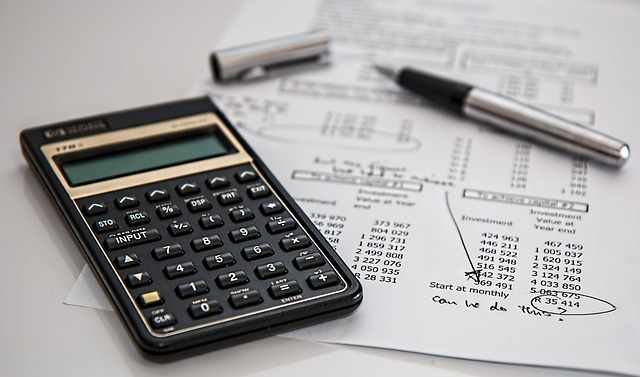
Equipment Finance Calculator
Calculate your farm equipment finance repayments
Use this farm equipment finance calculator to estimate your monthly repayments. This is a guide for illustration purposes only. Call 1300 262 098 to get actual quotes from Australian lenders.
It is always a good idea to do a break-even analysis so you understand how your cash flow will be affected.
Balloon Payment Options
Some finance agreements include a balloon payment, which is a larger lump sum due at the end of the loan term. This can reduce monthly repayments but requires careful planning to ensure you can manage the final payment (which are often planned to be paid off by selling the machinery).
Balloon payments can be a strategic option for those expecting significant income increases in the future.
Frequently Asked Questions
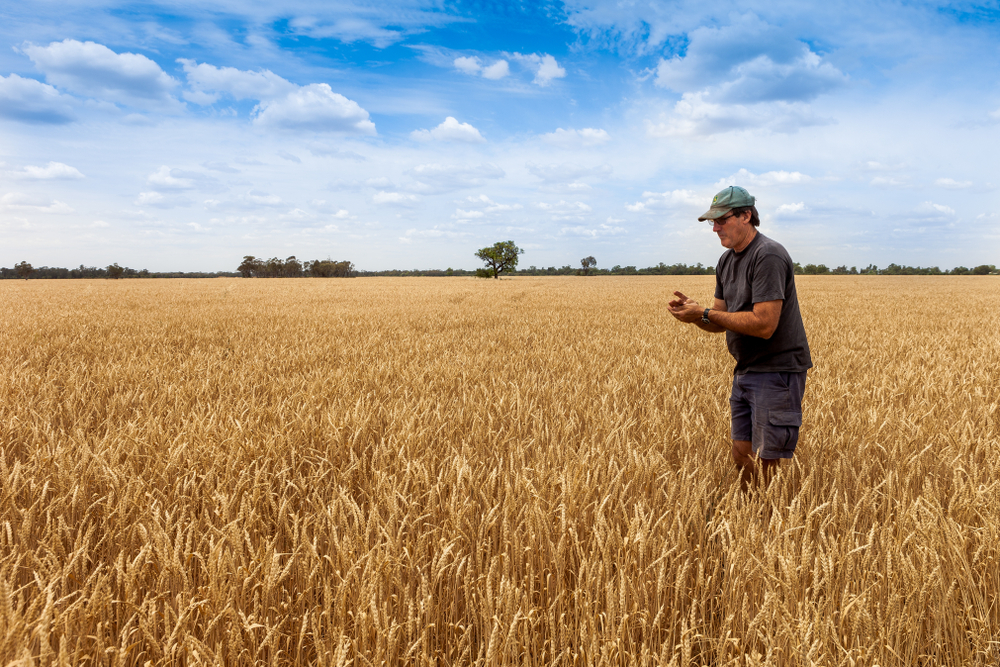
Which is the best bank for an agriculture loan?
Which is the best bank for an agriculture loan will really depend on your specific needs. The major players of course include NAB, Westpac, Commonwealth Bank, and Rural Bank, each offering specialised agribusiness services. The market is a lot more crowed than it used to be, which is why it pays to shop around, or use a business loan broker.
Farm loan amounts vary widely based on factors like land value, cash flow, and credit history, but can range from tens of thousands to millions of dollars.
How much can I borrow for a farm loan?
This varies significantly depending on several factors. A typically loan range can be from $100,000 to several million dollars. The exact amount you’ll be able to borrow will come down to:
1. Your financial situation (your income, assets, debts, credit score etc)
2. The value of the property or land you’re purchasing
3. The purpose of the loan (for example is it a land purchase, equipment, working capital?)
4. Your business plan and projected cash flow
5. The lender’s policies and risk assessment
Most lenders will finance up to 50-70% of the property value for farm purchases. For other purposes like equipment or working capital, loan amounts are generally based on your ability to repay.
To get a more precise estimate, speak to a lender or finance broker. They can provide a more accurate range based on your individual circumstances and needs.
What is a machinery equipment loan?
A machinery equipment loan is a special type of loan product designed to help farmers and agricultural businesses purchase necessary equipment. This could include agricultural machinery and equipment such as tractors, harvesters, irrigation systems, or other farm implements. These loans allow you to acquire necessary farming equipment you need now without a large upfront capital outlay, helping you maintain your cash flow while upgrading or expanding your operation.
The specific terms and conditions can vary between lenders, so it’s advisable to compare offers from different lenders, or speak to a finance broker. Low doc loans options are designed for borrowers who may not have extensive financial documentation or a business plan. These loans offer a streamlined approval process, making it easier to access funds. They can be a good option for self-employed farmers, or those with less traditional income documentation.
Are There Tax Benefits to Financing Farm Machinery?
Typically yes, many farm equipment finance options offer tax benefits, such as the ability to deduct lease payments as business expenses.
Consult with a tax professional to understand the specific benefits for your situation. These tax advantages can reduce the overall cost of your investment and improve your farm’s financial health.
What Is a Balloon Payment?
A balloon payment is a larger lump sum due at the end of the loan term. It can reduce monthly repayments but requires careful planning to ensure you can manage the final payment.
Balloon payments are often used in financing agreements where borrowers expect to have increased income or capital at the end of the term.
How Much Is a Down Payment On a Farm Machinery or Equipment Loan?
Expect your down payment to be about 10% – 20% on average if it’s a farm equipment loan. If you choose to lease instead, there usually isn’t a down payment.
What now?
By optimising your farm machinery investments with our finance solutions, you can focus on what matters most – growing your business and achieving your agricultural goals.
If you’d like any help or guidance, contact our expert team today.
